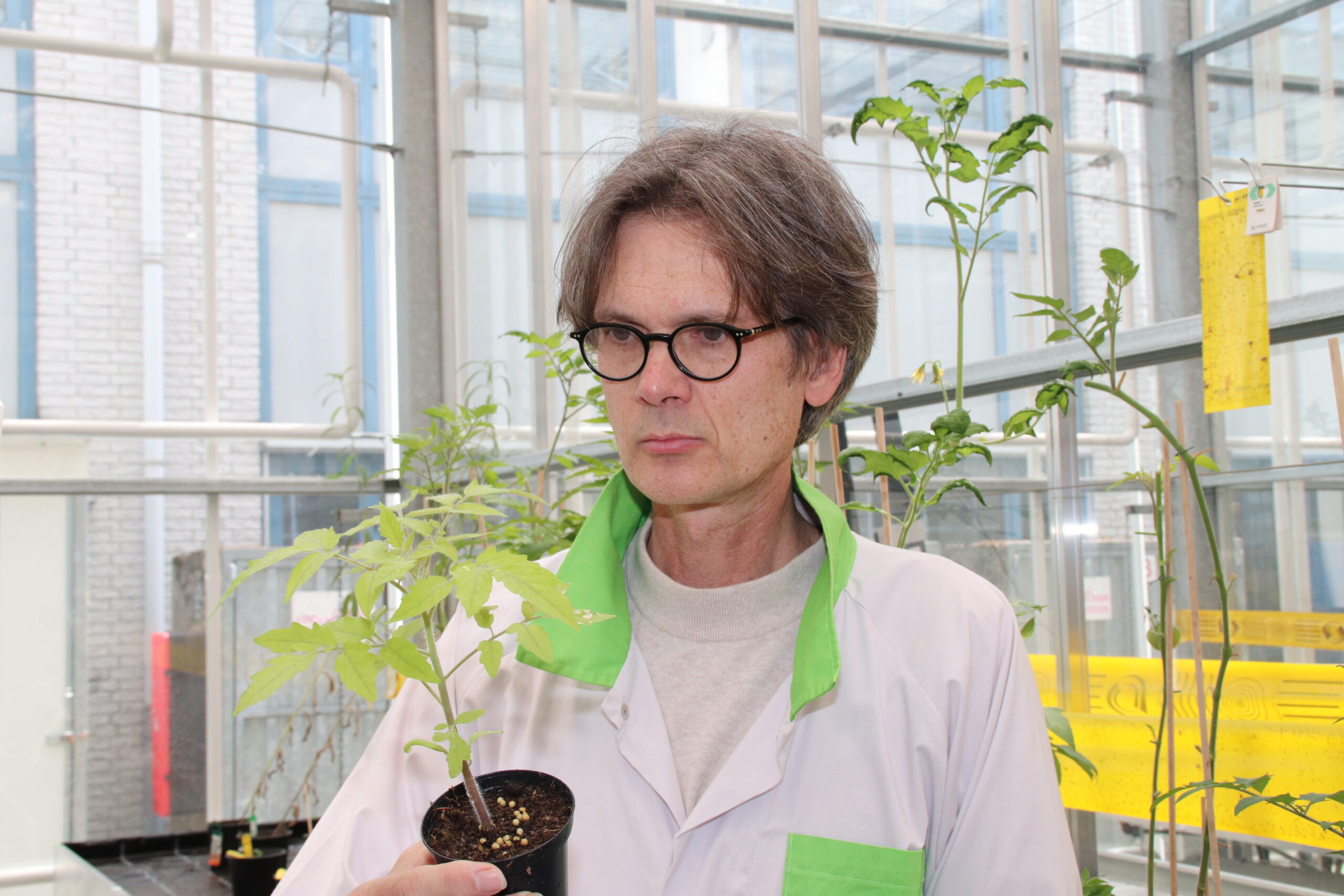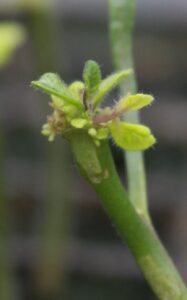20 June 2024
"It’s not all about genes in our research"
KeyGene 35 years: interview with Jeroen Stuurman, KeyGene

Jeroen Stuurman, scientist and inventor at KeyGene
In 2005, biologist Jeroen Stuurman joined KeyGene for a research position. Until then, Stuurman worked as plant geneticist at the University of Bern (Switzerland), after obtaining a PhD from the Free University Amsterdam
Jeroen Stuurman is part of the team of inventors at KeyGene. During his 18-year career at the company, he has made significant contributions to a wide range of topics, such as mutation breeding, grafting technologies and most recently regeneration of single cells into whole plants.
His contributions have helped breeders to create novel variation more precisely, to produce better seeds, to introduce novel resistances, and to enable next generation breeding technologies such as genome editing.
Variation
When plant geneticist Jeroen Stuurman started his – so far – 18-year career at KeyGene’s team of inventors, genes became his cup of tea indeed. “The nice thing about working with this company, is that you are not hired on any specific project”, Stuurman says. “You are given considerable freedom. Freedom to try and freedom to fail, but with the expectation to succeed from time to time as well.”
The first success that Stuurman and his colleagues marked on their track record, was the so-called KeyPoint® Breeding system. “Nowadays, reading genes can almost be considered a commodity. Rewriting genes, however, still is not an everyday thing. KeyPoint starts with inducing large-scale random mutations in the genetic material of plants, using mutagens. The innovative aspect was, that we became able to efficiently identify very rare and specific mutations, like the needles in the enormous haystack of mutations that was created”, Stuurman recalls.
Changes without side-effect
The innovative KeyPoint system has been thankfully adopted by many plant breeders. What they use it for, is often part of their trade secrets. Stuurman can give one concrete example, though, of what KeyPoint can achieve. “In rape seed, it can be very interesting to breed a shorter plant, that does not lie down as easily in windy or rainy conditions, but that still has the same amount of oily seeds. Using KeyPoint, we ’saturated’ a well-known gene for plant height with mutations. We discovered that only one single amino acid allowed for a modification with a shortening effect, without having negative side effects on other crucial traits of the plant.”
After the identification of this specific mutation, Stuurman got in touch with a German plant breeder that also worked on ‘shortening mutations’. This breeder used traditional, visual selection in the field. “They found exactly the same amino acid in exactly the same gene as we did, but identified a different modification , let’s say ‘A to B’, whereas we found ‘A to C’. This was a nice testimony of the benefits we could reap from the sheer size of our KeyPoint screening abilities, and of the efficacy that it provided.”
Looking beyond genes
After the KeyPoint adventures, Stuurman moved beyond genes, to enter the wider field of cells and tissues. “Relatively simple traits, such as the height of a rape seed plant, or the color of a tomato, are determined by one or maybe a few genes. More complex traits, such as resistance to certain diseases or regenerative potential in tissue culture, may be determined by a larger group of genes. But this reductionistic view does not extrapolate to any trait. You cannot just add more genes, to explain even more complex characteristics of a plant”, Stuurman says.
To improve, for example, the quality of seeds in certain crops, Stuurman realized he needed to look beyond the genes.
 “That’s when we entered a research field that can be best compared to tissue or organ transplantation in man. To improve the quality of tomato seeds, we used an old technique called ‘grafting’, where we ‘transplant’ the seedcoat of a wild tomato to the seeds of cultivars, rather than look for genes that could influence the seed quality. With this relatively simple intervention we could improve the quality of these seeds enormously, without knowing the complex molecular genetic details of how the plant did that. The particular grafting technique that we developed to do this can be used on a scale that is apt to the everyday requirements of commercial seed production.”
“That’s when we entered a research field that can be best compared to tissue or organ transplantation in man. To improve the quality of tomato seeds, we used an old technique called ‘grafting’, where we ‘transplant’ the seedcoat of a wild tomato to the seeds of cultivars, rather than look for genes that could influence the seed quality. With this relatively simple intervention we could improve the quality of these seeds enormously, without knowing the complex molecular genetic details of how the plant did that. The particular grafting technique that we developed to do this can be used on a scale that is apt to the everyday requirements of commercial seed production.”
Sustainable crops
After the first success in tomatoes, Stuurman and his colleagues are working on other plant breeding problems where ‘tissue grafting’ may come in handy. “To date, there is not one potato breed, for example, that is naturally resistant to the attack of insects such as lice, flies or Colorado beetles. The reason is that this trait originates from wild relatives, which makes it very difficult to breed into potato cultivars. It is one of the reasons why growing potatoes needs relatively high amounts of pesticides.”
“We now intend to graft regular potato cultivars to provide them with the skin of a wild conspecific, making them resistant to insect attacks, without affecting the essential agronomic characteristics of the original variety. In doing so, we may help to make the future production of potatoes more sustainable. This would be a truly exciting development”, Stuurman envisions.
Dealing with complexity
Looking with a bird’s eye view, Stuurman sees that molecular genetics, having been spectacularly successful with its reductionist programs, now stands face-to-face with the realities of biological complexity. “After 35 years, we seem get to a point where the grand old paradigms from plant genetics are reaching their boundaries. They need to be widened, in order to deal with the complexity of plants as living systems.
I expect that we can continue to contribute to the improvement of crops, as we have done for the past decades, by identifying and embracing novel concepts and technologies that will surely emerge in the years to come.”
Read the other KeyGene 35 years interviews
-
- Reflections by our shareholders: “We share the fundamental knowledge that KeyGene generates”
- Lora Kilgore-Norquest, Ingredion: “KeyGene helps us to quickly address the consumers’ needs”
- Chris Winefield, Lincoln University NZ: “A realistic view on a shared labor of love”
- Roeland van Ham, KeyGene: “Lateral thinking is in our DNA”
- Daniel Fordham, Oxford Nanopore Technologies: “KeyGene helped us to democratise sequencing technology”
- Ponnusamy Umashankar, Mahindra Agri Solutions Ltd.: “Speed and precision are the passion and purpose of our collaboration”